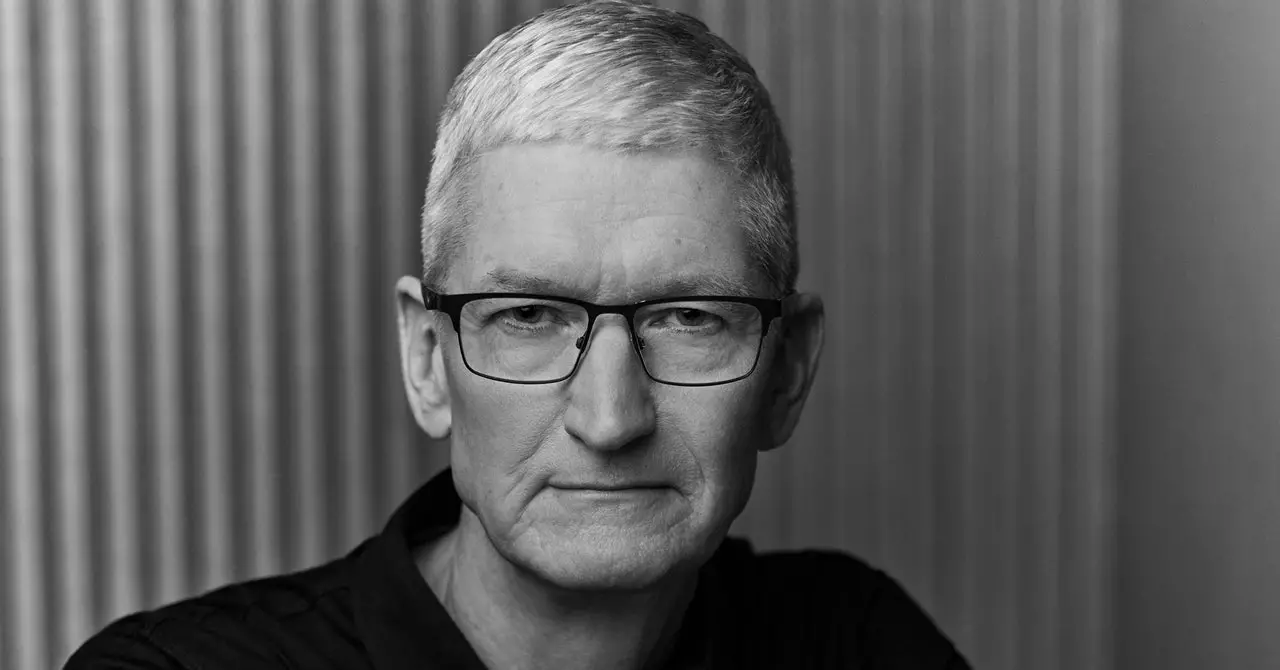Apple has long stood as a symbol of innovation and a beacon of consumer loyalty in the tech industry. As I approach Apple Park, a marvel of engineering that marked a significant investment by the company into its future, I reminisce about the early days of this project. Before the campus was completed, I had the rare opportunity to tour with none other than Tim Cook, the CEO whose vision has guided Apple through various waters, some tranquil and others tumultuous. Now, as I return to Apple’s iconic circular headquarters, I find myself reflecting on the critical juncture at which the tech giant stands as it prepares to launch Apple Intelligence, its bold entry into the generative AI domain.
Over the past year, the tech landscape has felt the tremors of change as companies race to innovate in the rapidly expanding field of artificial intelligence. While rivals have captivated audiences with their alluring chatbots and advanced applications, Apple has held back, revealing products that seemed less revolutionary compared to the competition. However, Tim Cook’s strategy appears to stem from a deep-rooted belief that waiting for the right moment can yield greater rewards than being the first to market. Much like the arrival of the iPod, whose debut redefined digital music consumption despite not being the first device of its kind, Cook remains unfazed by the competition’s incessant buzz.
The stakes couldn’t be higher. As we engage in discussions with Cook about Apple Intelligence, he articulates a vision that is not merely about catching up but fundamentally rethinking AI advancements. His reasoning is grounded in the company’s longstanding ethos of prioritizing user experience—an effort exemplified by the action of bringing Google’s top AI talent to Apple and reorienting existing resources towards their software capabilities. The recent announcements make it clear: the groundwork for AI integration has been laid, and Apple plans to unveil cutting-edge tools that encourage creativity and personalization, echoing the familiar patterns of their product launches.
One notable aspect that distinguishes Apple’s approach to AI is its unwavering focus on user privacy, an emblematic value under Cook’s leadership. This commitment stands in stark contrast to the cloud-dependent operations of many competitors. For Apple users, this promise means that the computational power for AI functionalities is largely processed within their personal devices. This privacy-centric design not only offers security but also enhances user trust—a crucial factor in today’s data-driven economy. Cook proclaims that while some advanced processes occur in Apple’s secure data centers, the machine-learning capabilities will primarily harness the power of individual devices.
Moreover, this AI push is coupled with a partnership with OpenAI, granting users access to tools that have become synonymous with innovation in enterprise and consumer AI. From custom emoji generation to intuitive image creation applications, these innovations signal a strategic alignment with contemporary trends, while also promising to make sophisticated technology accessible to everyday users.
Cook’s finesse lies in the art of managing narratives. As I observe him interact with reporters, it becomes evident that his communication style is markedly different from that of his predecessor, Steve Jobs. Cook engages in discussions with a courteous demeanor, skillfully highlighting Apple’s achievements while sidestepping potential pitfalls. This strategy creates an aura of confidence and control, crucial for a company operating in an increasingly scrutinized public environment.
The challenge, however, rests on the shoulders of consumers and the broader market. While Cook can eloquently frame his vision and highlight past successes, the true test of legitimacy will come from user experiences with Apple Intelligence. Questions linger about whether the first-generation offering will meet high expectations or if, as history suggests, Apple will release an improved version hailed as unprecedentedly effective at a later date.
As Apple navigates this transformative period, Tim Cook remains unruffled. He is acutely aware of the weight of responsibility resting on his shoulders as he leads one of the world’s most influential corporations into the future. The pressure mounts not only from external competitors but also from internal expectations for innovation and relevance. Yet, in an industry notorious for rapid evolution, it is evident that Cook’s calculated approach could provide Apple with the resilience needed to thrive in turbulent times.
Ultimately, while Apple’s foray into AI may be perceived as tentative compared to its rivals, Cook’s unwavering dedication to quality, privacy, and user satisfaction signifies a thorough understanding of what consumers truly value. As Apple Intelligence begins to roll out, the industry’s eyes will remain fixed on Apple, eager to measure its impact and the company’s ability to once again redefine the technological narrative.

